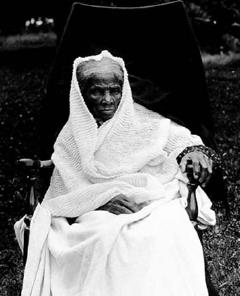In the United States, the campaign to prohibit slavery strengthened in the early 1800s. Across the Atlantic, abolitionists had successfully lobbied for the outlaw of slave trade in Great Britain by 1807. The following year, the U.S. government also outlawed the trade, but possession of slaves remained legal and profitable. In the 1830s the call to abolish slavery and emancipate slaves became an active movement in the United States, precipitated by a revival of evangelical religion in the North. Abolitionists, believing slavery is morally wrong and violates Christian beliefs, called for an end to the system, which had become critical to the agrarian economy of the southern states, where plantations produced cotton, tobacco, and other crops for domestic and international markets.

Underground Railroad conductor Harriet Tubman (pictured in 1911) worked against slavery by helping hundreds of blacks head to freedom in northern states and Canada.

